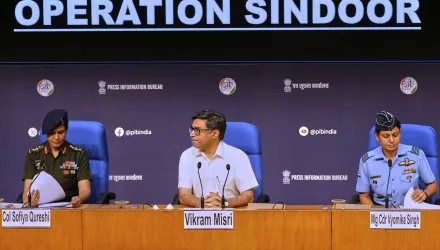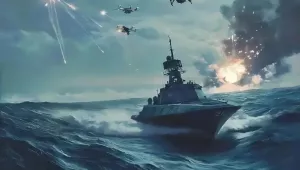Then-Secretary of Defense Robert Gates traveled to Brussels in June, where he warned European allies of the “dwindling … patience in the U.S. Congress” with NATO and declared that if allies did not get serious about meeting their NATO responsibilities they could soon find that American leaders “may not consider the return on America’s investment in NATO worth the cost.”
It has been just a few weeks since Gates spoke those words, and already his predictions are beginning to come true. This week, Senate Majority Leader Harry Reid (D-Nev.) called off a Senate vote on legislation authorizing the U.S. mission in Libya for fear he did not have the support to pass it. The House recently rejected similar legislation authorizing the mission by an overwhelming vote of 295-123 – an unprecedented vote of no-confidence in NATO. And recently, our friend Richard Haass, president of the Council on Foreign Relations, spoke for many when he wrote in the Washington Post that “Europe no longer matters” and asked: “If NATO didn’t exist today, would anyone feel compelled to create it?”
To this we respectfully answer: Yes, we would. NATO is in desperate need of reform, to be sure. But NATO is needed. An America that cannot be either isolationist or unilateralist must have allies in a dangerous, complex and highly integrated 21st century. Of the last four wars the United States has fought — Kosovo, Afghanistan, Iraq and Libya — NATO has had a direct combat role in three. The alliance has proven its worth, and the U.S. would be a substantially weaker power without it.
Despite its uneven execution of the mission in Libya, NATO has still saved countless lives. Before NATO’s intervention, Moammar Gadhafi had promised to make the streets of Benghazi “run with blood” and was subjecting the people of Misurata to a daily barrage of rockets, cluster bombs, and sniper fire. Today, Gadhafi is on the ropes as NATO and the rebel alliance have regained the offensive. Civilians in both cities are no longer under threat of massacre. They are certainly glad that NATO exists today.
So are the people of Afghanistan. NATO went into Afghanistan in 2003 and has stayed with the U.S. there for eight years. When the U.S. faced a tougher-than-expected fight in Iraq and surged forces into that country in 2007, NATO held down the Afghan front during this critical period. Without NATO’s efforts, the Taliban might well have prevailed, and the military progress President Obama described in his recent address to the nation would not have been possible.
To continue reading, click here.
Burns, Nicholas, William Cohen and George Robertson. “NATO on the brink.” The Hill, July 12, 2011




